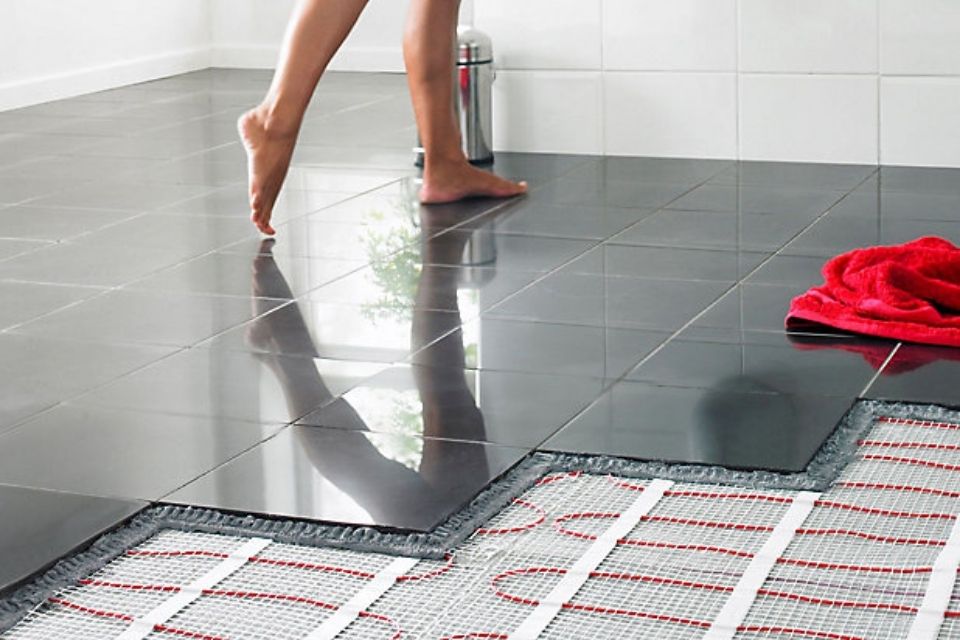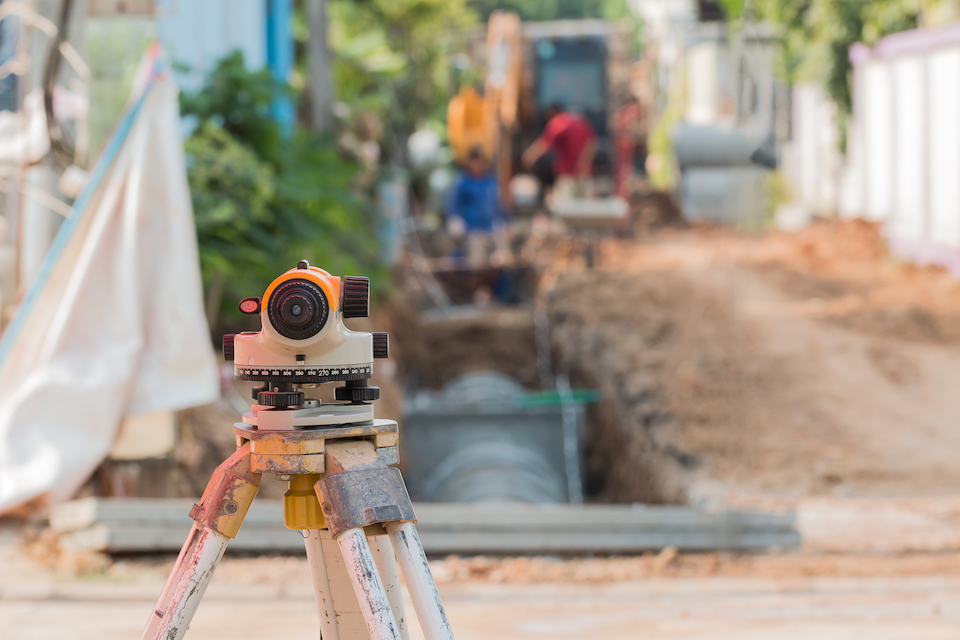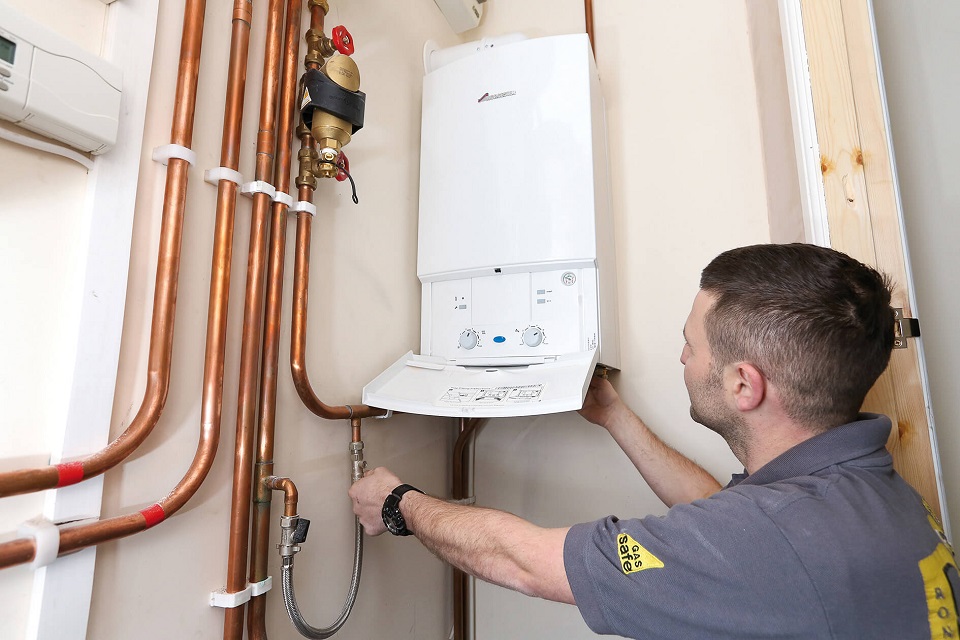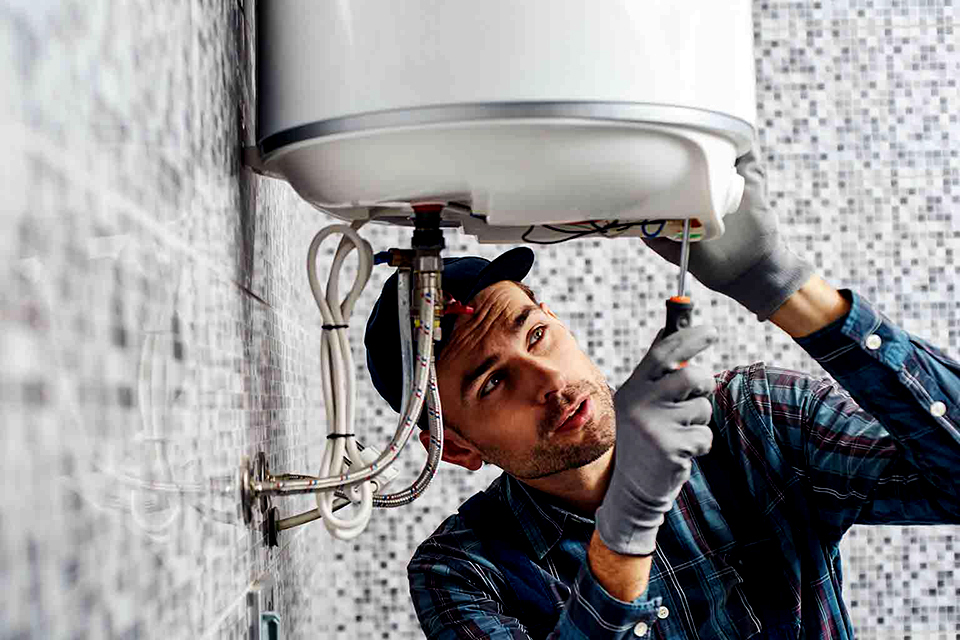How Much Does Underfloor Heating Cost?
The average cost of fitting an electric/dry system where renovation work is needed would land around £2,900 to £3,100 for a 40m2 area, £4,200 to £4,500 for a 60m2 area, or £5,700 to £5,900 for an 80m2 surface area.
If you have a new build property, fitting a dry system would set you back about £1,650 to £1,750 for a 40m2 area, £2,400 to £2,700 for a 60m2 area, or £3,300 to £3,500 for an 80m2 surface.
To have a wet system fitted and with renovation works, you'd need to budget for about £6,900 to £7,500 for a 40m2 area, £10,500 to £11,100 for a 60m2 surface, or £14,100 to £14,700 for an 80m2 area.
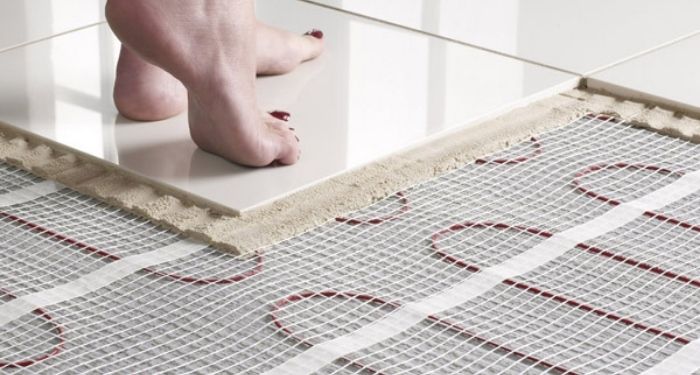
To have a water-based underfloor heating system fitted in a new build property, could roughly £4,100 to £4,700 for a 40m2 area, £6,000 to £6,600 for a 60m2 area, or £8,200 to £8,800 for an 80m2 area.
The main cost-affecting factors of installing underfloor heating are the type of underfloor heating, the type and size of the floor, the number of tradespeople hired, ease of access, and the location of your property.
Heating engineers charge different rates throughout the country due to the varying costs of living for different regions.
For example, labourers generally charge more in the southeast of England (London especially) but less than the national average in, say, Scotland or Northern Ireland.
Underfloor Heating Prices
| System Type (Property) | Surface Area | Total Cost |
|---|---|---|
| Dry (Renovation) | 40m2 | £2,900 to £3,100 |
| 60m2 | £4,200 to £4,500 | |
| 80m2 | £5,700 to £5,900 | |
| Dry (New Build Property) | 40m2 | £1,650 to £1,750 |
| 60m2 | £2,400 to £2,700 | |
| 80m2 | £3,300 to £3,500 | |
| Wet (Renovation) | 40m2 | £6,900 to £7,500 |
| 60m2 | £10,500 to £11,100 | |
| 80m2 | £14,100 to £14,700 | |
| Wet (New Build Property) | 40m2 | £4,100 to £4,700 |
| 60m2 | £6,000 to £6,600 | |
| 80m2 | £8,200 to £8,800 |
Is Underfloor Heating Expensive To Run?
Underfloor heating systems vary in price for the running costs depending on whether it’s a wet or dry heating system. For both systems, the cost is around £2 - £3.50 per hour, which is based on current fuel prices.
- How Much Does Underfloor Heating Cost?
- What are the Supply Costs of Underfloor Heating?
- What are the Additional Costs of Underfloor Heating?
- Tradesmen Costs for Underfloor Heating Installation
- How Long Does It Take to Install Underfloor Heating?
- Types of Underfloor Heating
- Benefits of Underfloor Heating
- How Much Does It Cost to Remove Underfloor Heating?
- FAQs
- Sources
What are the Supply Costs of Underfloor Heating?
The material cost of underfloor heating is separate from the labour costs and cover the supplies alone. Let's discuss the supply costs of fitting underfloor heating based on different types of underfloor heating and the floor size.
Electric underfloor heating tends to have a supply cost ranging from £50 to £80 per m2. As for a wet underfloor heating system, you can expect the material costs to land between £90 and £190 per m2.
The supply cost will depend on whether the property is renovated or a new build since the supply costs involved in renovation will be higher.
| Type of Underfloor Heating | Supply Costs |
|---|---|
| Dry System | £50 to £80 per m2 |
| Wet System | £90 and £190 per m2 |
What are the Additional Costs of Underfloor Heating?
There are a range of additional expenses you may need to pay when having underfloor heating installed. Let's look at some common examples.
Minimum Fee
In some cases, labourers will include a minimum fee either as an added cost to your final bill or in the form of a guaranteed charge (e.g. a daily labour cost).
In the case of being charged per day of labour, this would mean for work that takes two days and six hours.
You'd pay the same as you would if it were to last two days and eight hours (i.e. you'd pay for three days of labour).
Types of Underfloor Heating
Of course, an installation's price will vary depending on whether you are having an electric or wet underfloor heating system installed. In general, electric underfloor heating tends to be more affordable than an electric system.
Floor Size
One of the biggest cost factors is the total surface area being fitted with underfloor heating. The larger the floor size, the more the supply and labour costs will be.
Floor Type
The reason that floor type is relevant to the cost of installing underfloor heating is down to the fact that some flooring will be more difficult to lift and refit than others. As a result, the labour cost will vary depending on floor type.
Materials
Depending on the quality and nature of the underfloor heating systems, whether it is a wet or dry system, costs can vary based on the materials used (e.g. underfloor heating mats or an underfloor heating kit).
For instance, a higher quality system will feature more expensive materials than a cheaper alternative.
Number of Tradespeople
Another significant cost factor is the number of labourers hired. It goes without saying that the more tradespeople on the job, the higher the labour cost will be.
However, this may not add to your overall bill since the more people working on the job, the quicker it will take to complete.
Duration
In general, the longer it takes to fit underfloor heating, the higher the labour costs will be. This may not always be the case, however.
For example, if you are charged per day of labour, then you'd pay the same amount in labour expenses whether the work lasts for four days and two hours or four days and six hours. In this case, you'd be charged for five days of labour.
Tradesmen Costs for Underfloor Heating Installation
We'll now delve into the labour costs involved in having underfloor heating fitted. We will break down the costs based on the system being fitted and the floor size. In this section, we'll also look at the various factors that influence the labour cost.
The total labour cost of fitting underfloor heating would come to about £300 per day.
Starting with an electric or dry system, in the case of a renovated property, the labour cost would be about £500 to £700 for a 40m2 floor size, £600 to £900 for a 60m2 area, or £900 to £1,100 for an 80m2 surface area.
If you are going with an electric new build, the labour costs will be approximately £250 to £350 for a 40m2 area, £300 to £600 for a 60m2 area, or £500 to £700 for an area that is 80m2.
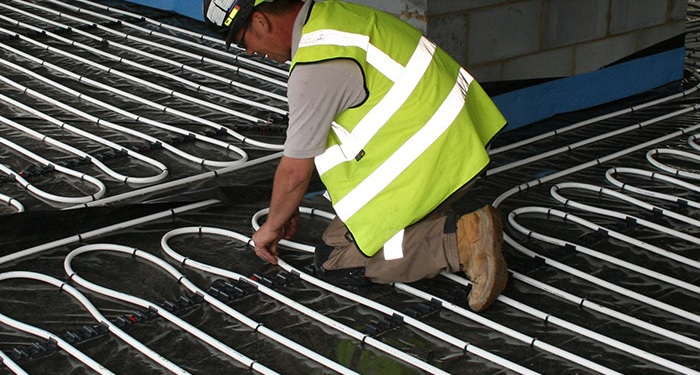
Moving on to a water renovated installation, the labour costs would land around £900 to £1,500 for an area of 40m2, £1,500 to £2,100 if it is 60m2 or £2,100 to £2,700 for an 80m2 surface.
As for a new build property, to have a wet system installed would set you back £900 to £1,500 for a 40m2 area, £1,200 to £1,800 for a 60m2 area, or £1,800 to £2,400 for an 80m2 property.
The labour costs may vary depending on the number of tradespeople hired, ease of access, the location of your property, the state of the work area, and the type of flooring.
This is an important cost factor for property location because heating engineers charge different rates throughout the country.
For example, a heating engineer in Plymouth will likely charge between £30 and £38 per hour. In Belfast, perhaps just £32 to £36 per hour. However, costs rise to about £52 to £62 an hour in London and as much as £64 to £70 per hour in Gloucester.
Tips for choosing a qualified underfloor heating installer
Regardless of which type of system you choose we would recommend always seeking a professional to complete the installation for you. Ensure you obtain at least three quotes and look for a reputable company.
How Long Does It Take to Install Underfloor Heating?
The duration involved in fitting underfloor heating will vary depending on several factors, which we will look at in this section. First, however, let's look at how long it will take for this job depending on the type of instalment and floor space size.
To fit an electric underfloor heating system with renovation work, will take about two days for a 40m2 surface, two to three days for a 60m2 area or, three days for an 80m2 surface.
To have a dry system fitted in a new build property, expect it to take roughly one day for a 40m2 area, one to two days in the case of a 60m2 surface, or two days for an 80m2 area.
As for water underfloor heating, with renovation works, this type of installation would take approximately three to five days for a 40m2 area, five to seven days should the surface area be 60m2 or seven to nine days for an 80m2 area.
As for a new build property, to have a wet system fitted would take three to five days for a 40m2 surface, four to six days in the case of a 60m2 area, or six to eight days for an 80m2 area.
Types of Underfloor Heating
We'll now take a closer look at the features and pros & cons of an electric and wet underfloor heating system.
Dry Underfloor Heating Cost
An electric or dry underfloor heating system is powered with electricity that reaches the system using heating cables.
Such cables traverse the area below the flooring and exist in loops. Heating can often be made more even with a dry system than with a wet system.
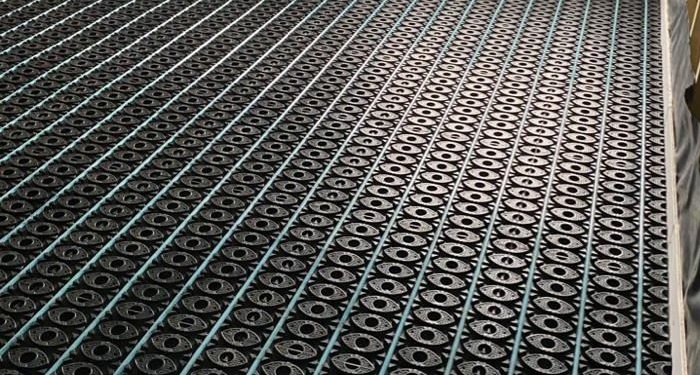
This is generally the most suitable option for a home renovation. Installing electric underfloor heating may cost between £1,650 and £5,900.
Pros:
- Cheaper than a wet system
- It takes less time to fit
- Ideal for a home renovation
Cons:
- More susceptible to faults
Wet Underfloor Heating Cost
A wet system, also known as a water underfloor heating system, comprises pipes designed to provide heat to the room above.
In most cases, the pipes are connected to a boiler via a manifold. However, regardless of the heat source, wet systems release heat vertically from the floor beneath.
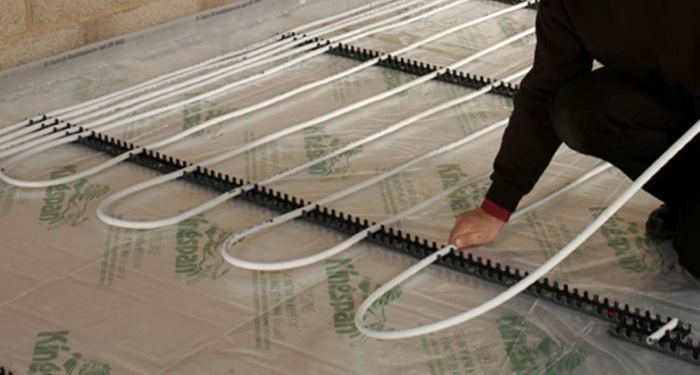
They are far more common than electric systems. The average cost of installing a wet system is between £4,100 and £14,700. Though they are more expensive to fit, wet systems come with lower running expenses.
Pros:
- Cheaper running costs
- Not always suited to a given installation area
Cons:
- More expensive
- Takes longer to install
Benefits of Underfloor Heating
Whether you go with a wet or dry system, there are many advantages to underfloor heating regardless. Let's break down some of the key benefits.
Saves Space
First and foremost, underfloor heating will, of course, save plenty of space above the surface. As a completely concealed heating system, it means you can remove old radiators, opening your home visually and practically.
Energy Efficient
Though a wet system will save you more on your energy bills than a dry system, both types of underfloor heating are energy-efficient.
They will save you money in the long-term instead of continuing to use a more conventional heating system.
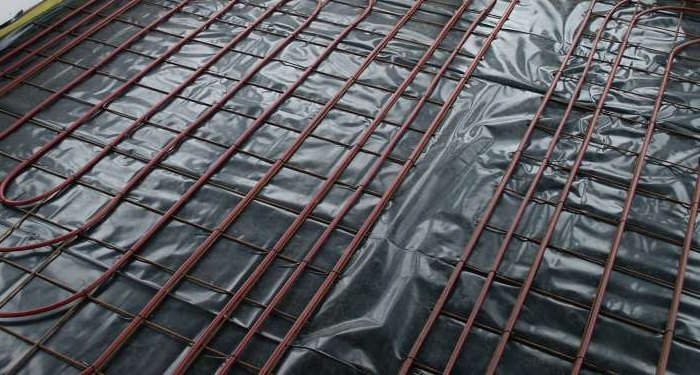
Increased Property Value
In addition, underfloor heating can add to the value of your property as many possible buyers will find such a system particularly appealing. It may add several per cent to your home's total worth.
Comfortable Underfoot
Not only is underfloor heating a discreet and efficient way of heating your home, but an added bonus is that it will create a warm, comfortable underfoot.
Underfloor Heating Vs Radiators
When deciding which heating system is best for you, there are numerous considerations. The initial outlay of the underfloor systems can be expensive but will be far more energy efficient than radiators.
Radiators will cost less to install but can create hot and cold areas around your home. You will need to carefully assess your needs and budget for which is better for your home.
How Much Does It Cost to Remove Underfloor Heating?
To have underfloor heating removed is a complex task.
You may decide to have it removed for reasons of legality (e.g. you had underfloor heating fitted in a listed building and were told by the council to remove it).
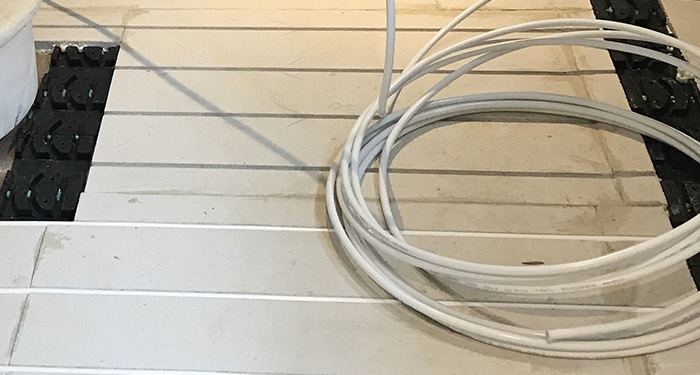
To have the flooring itself removed would cost about £30 to £34 per m2. The labour rate may cost between £25 and £35 per hour.
However, if you also need to hire an electrician to have a dry system removed, you'd need to pay an additional £30 to £40 an hour. As you can see, these costs could add up quite quickly.
FAQs
Q: How does underfloor heating work?
A: Underfloor heating works by having underfloor components heated (a circuit for a dry system or a pipe network for a wet system) and then distributing the heat to the areas above.
Q: How much does underfloor heating cost to run?
A: Though it will depend on the size of the underfloor heating system, on average about £260 to £300 per year for an electric system. A wet system will cost noticeably less to run.
Q: How long does underfloor heating last?
A: If well maintained, in theory, they can last indefinitely. There is no clear lifespan for underfloor heating.
Q: How much will underfloor heating save on my bills?
A: Unfortunately, underfloor heating may not actually save you as much as you'd like. In fact, it may save about £20 per year on your heating bills, but it will depend on the layout and type/quality of the system.
Q: Can I install underfloor heating DIY?
A: Yes, but only if you know exactly what is involved and take all of the necessary safety precautions. There are also building regulations and planning permission rules that you'll need to take into account.

